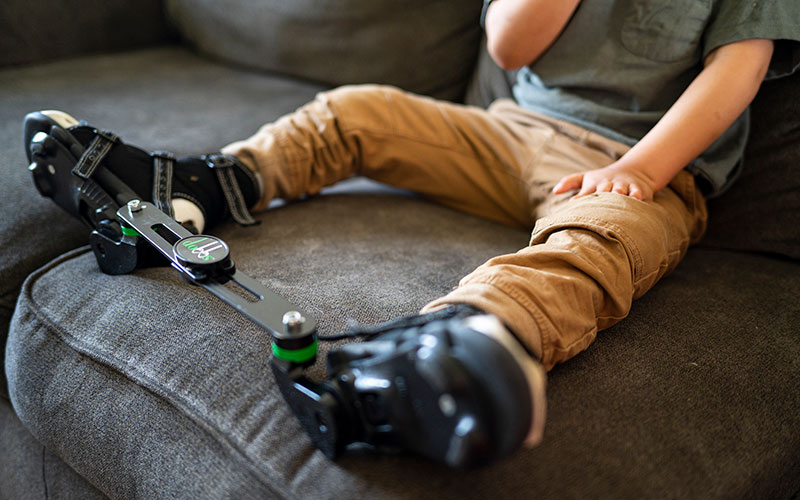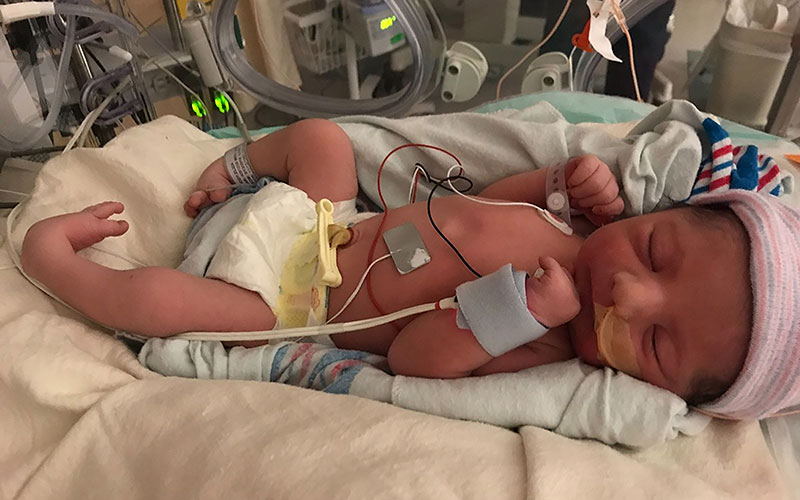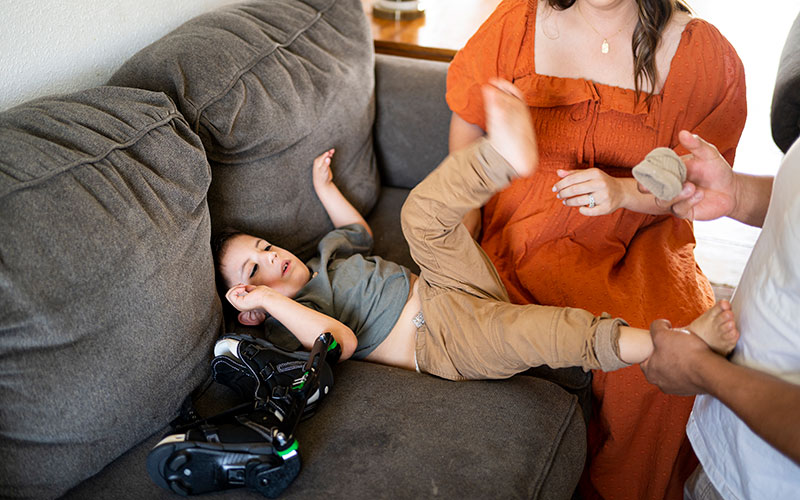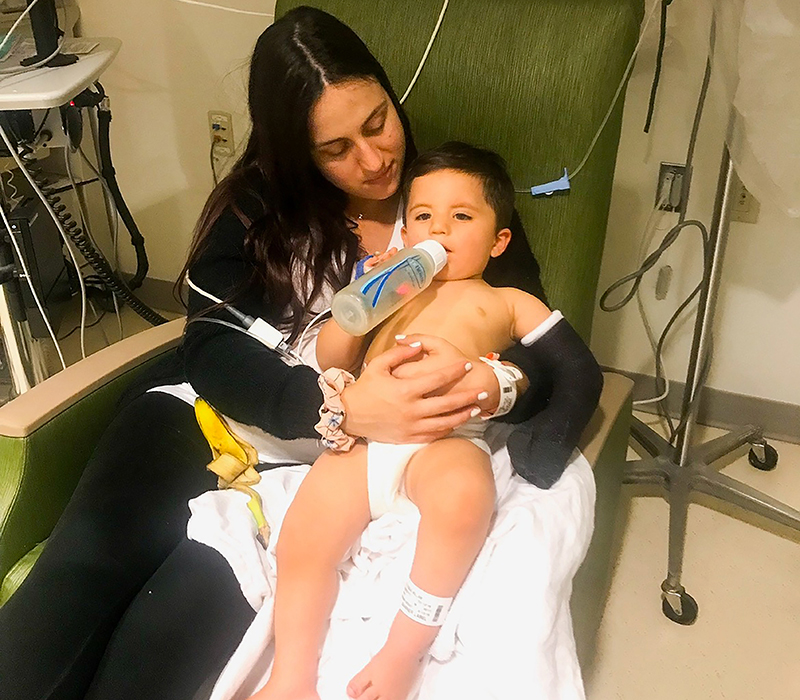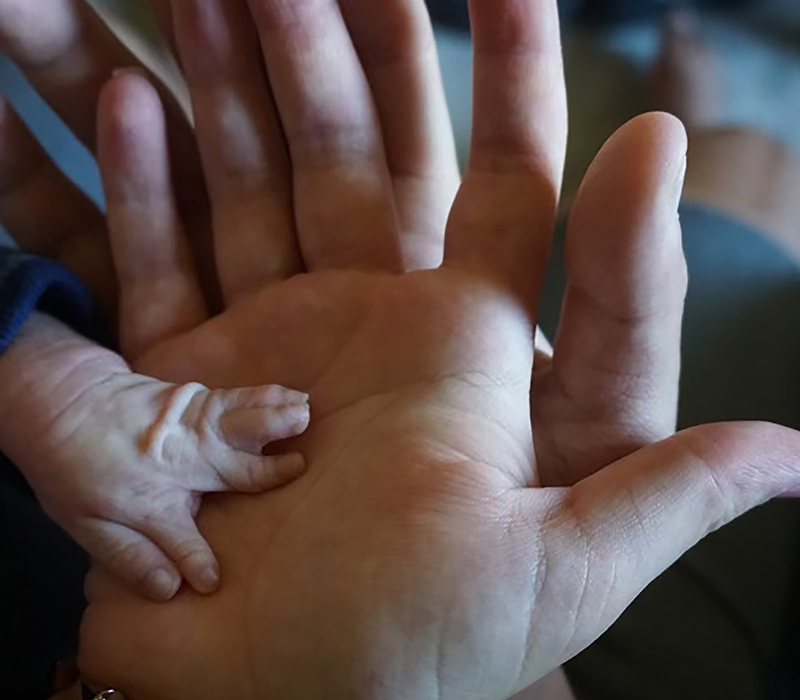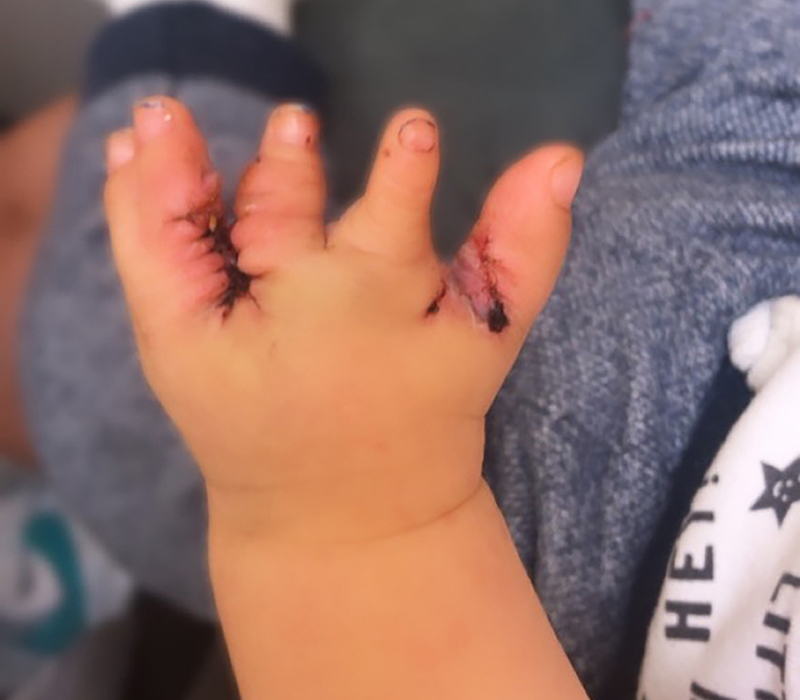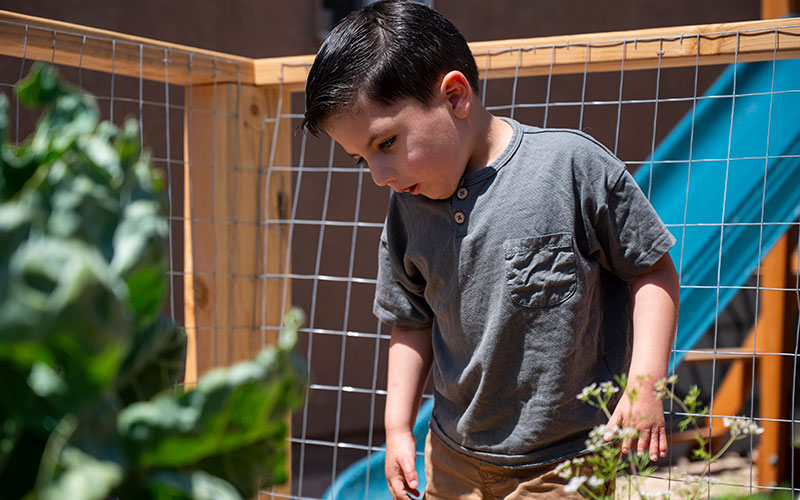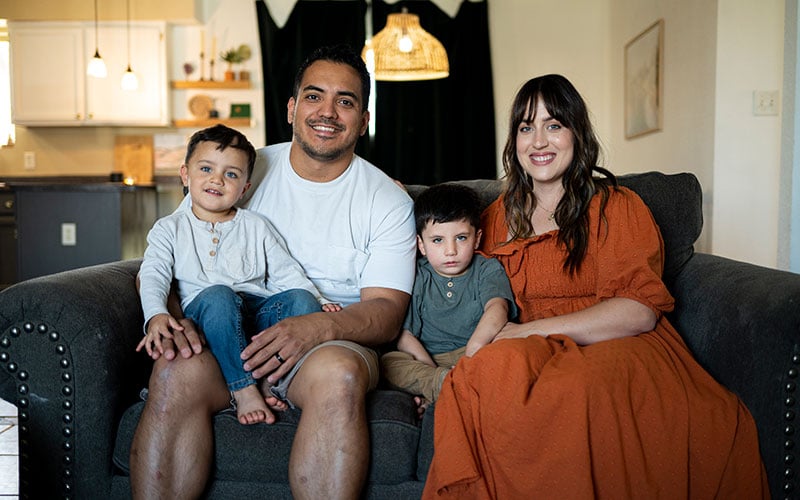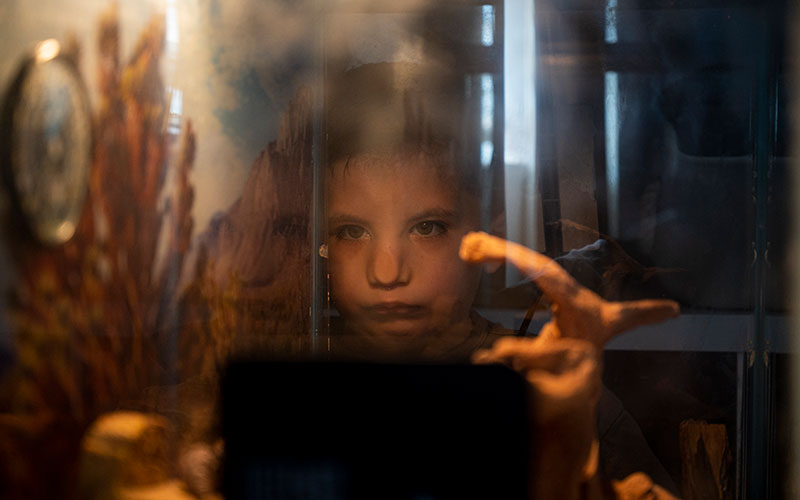
Tobias Lugo looks at his pet gecko inside its enclosure in Yuma on April 3, 2022. (Photo by Genesis Alvarado/Cronkite News)
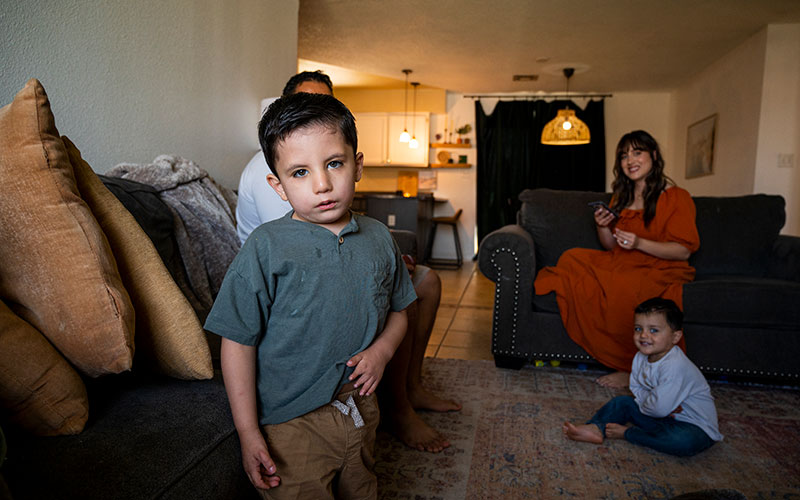
Tobias Lugo asks why someone is taking pictures of him while he watches “Peter Rabbit” in his living room in Yuma on April 3, 2022. (Photo by Genesis Alvarado/Cronkite News)
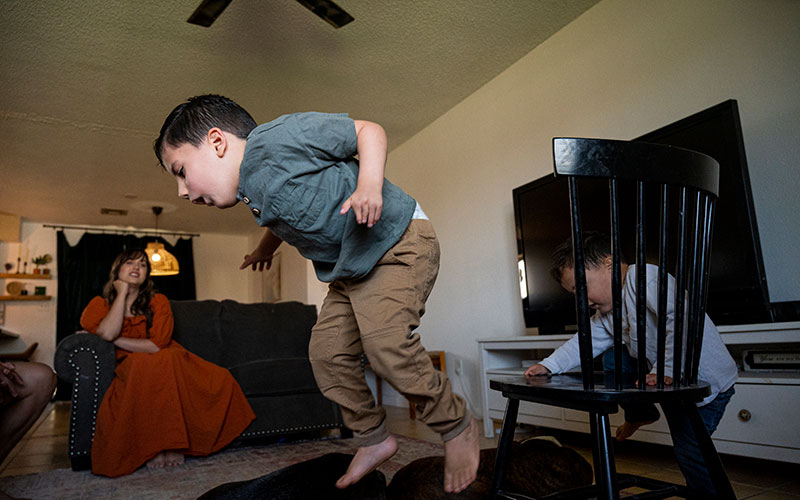
Tobias Lugo, 4, takes turns jumping off a chair with his brother, Zeke, 2, in their living room in Yuma on April 3, 2022. (Photo by Genesis Alvarado/Cronkite News)
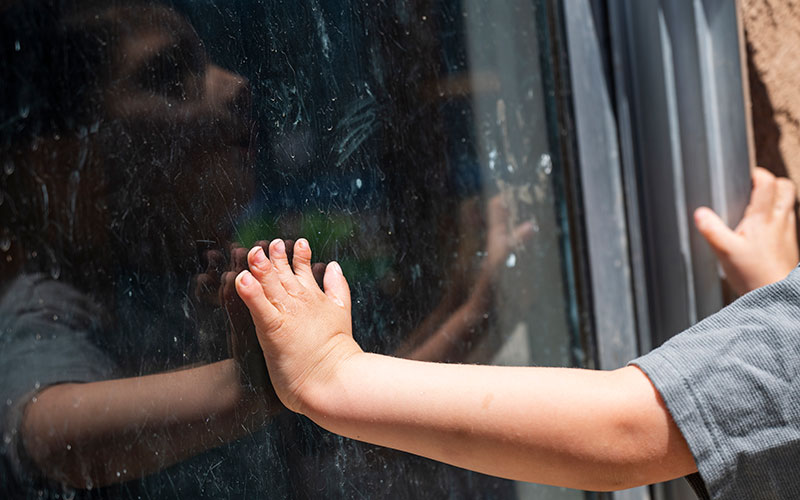
Tobias Lugo tries to open the back door to his house after looking for ladybugs in the family’s garden in Yuma on April 3, 2022. (Photo by Genesis Alvarado/Cronkite News)
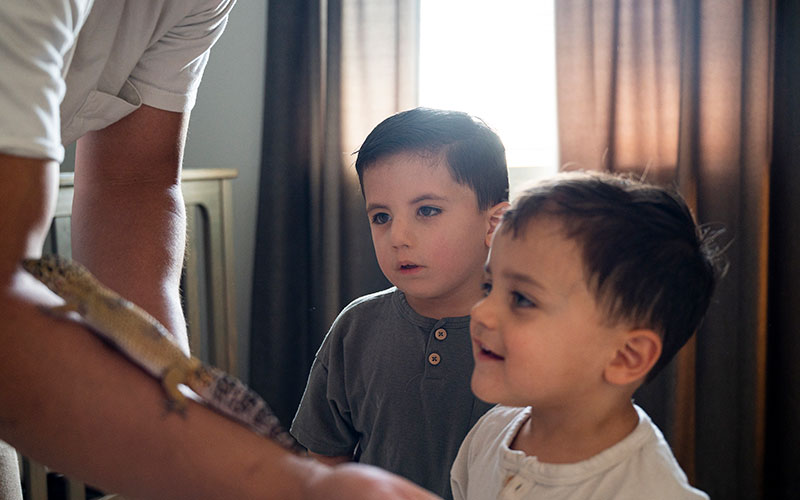
Tobias Lugo, left, and Zeke Lugo are curious about their pet gecko, which their father carries to prevent the boys from squeezing it in Yuma on April 3, 2022. (Photo by Genesis Alvarado/Cronkite News)

Tobias Lugo looks at his pet gecko inside its enclosure in Yuma on April 3, 2022. (Photo by Genesis Alvarado/Cronkite News)

Tobias Lugo asks why someone is taking pictures of him while he watches “Peter Rabbit” in his living room in Yuma on April 3, 2022. (Photo by Genesis Alvarado/Cronkite News)

Tobias Lugo, 4, takes turns jumping off a chair with his brother, Zeke, 2, in their living room in Yuma on April 3, 2022. (Photo by Genesis Alvarado/Cronkite News)

Tobias Lugo tries to open the back door to his house after looking for ladybugs in the family’s garden in Yuma on April 3, 2022. (Photo by Genesis Alvarado/Cronkite News)

Tobias Lugo, left, and Zeke Lugo are curious about their pet gecko, which their father carries to prevent the boys from squeezing it in Yuma on April 3, 2022. (Photo by Genesis Alvarado/Cronkite News)

Tobias Lugo looks at his pet gecko inside its enclosure in Yuma on April 3, 2022. (Photo by Genesis Alvarado/Cronkite News)
